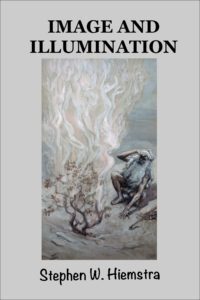God Image in Creation and Spoken Word

The heavens declare the glory of God, and the sky above proclaims his handiwork.
Day to day pours out speech, and night to night reveals knowledge …
The law of the LORD is perfect, reviving the soul;
the testimony of the LORD is sure, making wise the simple.
(Ps 19:1-7)
By Stephen W. Hiemstra
According to Athanasius (1944, 27-28), we can know God through three methods: Pondering the immensity of heaven and the harmony of creation, conversing with holy men, and following the law. All three methods of knowing God are woven into the fabric of Psalm 19, cited above. Again, we see the integration of created being, goodness (perfection), and knowledge (law) mirroring the unity of heart and mind in Hebrew anthropology.
God’s General Revelation
Scripture, as in Psalm 19 cited above, normally assumes awareness of God through creation. Likewise in Psalm 8 we read: “When I look at your heavens, the work of your fingers, the moon and the stars, which you have set in place, what is man that you are mindful of him, and the son of man that you care for him?” (Ps 8:3-4) The Apostle Paul makes this point emphatically:
“For what can be known about God is plain to them, because God has shown it to them. For his invisible attributes, namely, his eternal power and divine nature, have been clearly perceived, ever since the creation of the world, in the things that have been made. So they are without excuse.” (Rom 1:19-20)
The idea that order in the universe points to a divine creator, like finding a watch on the beach points to the existence of a watchmaker, is a classic proof for God’s existence (Keller 2016, 219). In theology this awareness of God through creation is described as his general revelation.
A personalized variation on this concept of general revelation is to argue, as Thomas (1996, 23) does, that creation awareness is one of nine sacred pathways to God. Naturalists are those that experience God most clearly through communing with his creation. The other nine pathways are through the senses, tradition, asceticism, activism, caregiving, via mysteries, through contemplation, and with the mind (Thomas 1996, 7). What Thomas describes as pathways depend on the spiritual gifts that God gave us in our creation.
God’s Voice
Adam and Eve recognized God’s voice when he called to them in the Garden of Eden (Gen 3:8-10). Cain, Noah, Abraham, Moses, and Job all spoke directly with God. Athanasius (1944, 26) argues that God created us in his image precisely so that we might recognize him. Even Satan recognizes God’s voice (Gen 3:14-15).
The Blackabys (2002, 31-32) inventory the ways that God spoke to his people in the Old and New Testaments. In just the Old Testament:
“Creation, angels, prophets, dreams, visions, casting lots, Urim and Thummim, gentle voice, fire, burning bush, preaching, judgments, symbolic actions, signs, miracles, writing on the wall, a talking donkey, trumpets, thunder and lightning, smoke and storms, fleece, the sound of marching on treetops, face-to-face, personal guidance, and various unspecified ways.”
The voice of God can still be heard, but not everyone listens.
The role of a prophet in the Old Testament was to point people to the Mosaic covenant and to listen for God’s voice, which had become veiled to most people: “Hear my words: If there is a prophet among you, I the LORD make myself known to him in a vision; I speak with him in a dream.” (Num 12:6) Yet, if God’s voice were faint and the prophets amplified it, lack of acceptance, not deafness, was the underlying issue because the prophets were typically persecuted.
Jesus railed against this persecution: “O Jerusalem, Jerusalem, the city that kills the prophets and stones those who are sent to it!” (Matt 23:37) More typically today, observant pastors are shunned in favor of those that preach what people want to hear, which the Apostle Paul derided with these words: “For the time is coming when people will not endure sound teaching, but having itching ears they will accumulate for themselves teachers to suit their own passions.” (2 Tim 4:3) Itchy ears make hard for many people to know God through holy men and women, as Athanasius opined.
References
Athanasius of Alexandria. 1944. On the Incarnation (Orig pub 319 AD). Translated by Sister Penelope Lawson. England.
Blackaby, Henry and Richard. 2002. Hearing God’s Voice. Nashville: Broadman and Holman Publishers.
Keller, Timothy. 2016. Making Sense of God: An Invitation to the Skeptical. New York: Viking Press.
Thomas, Gary L. 1996. Sacred Pathways: Discover Your Soul’s Path to God. Grand Rapids: Zondervan.
God Image in Creation and Spoken Word
Also see:
The Who Question
Preface to a Life in Tension
Other ways to engage online:
Author site: http://www.StephenWHiemstra.net
Publisher site: http://www.T2Pneuma.com
Newsletter: https://bit.ly/Mem_2022, Signup
The post God Image in Creation and Spoken Word appeared first on T2Pneuma.net.



